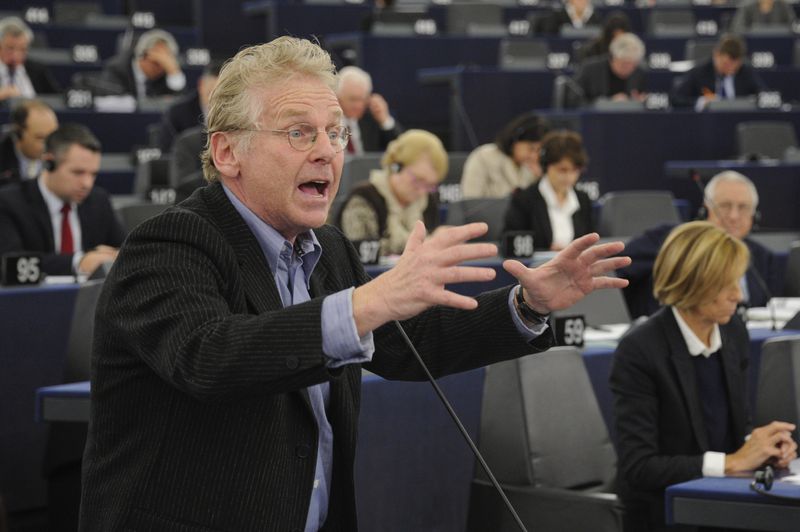We Are At the Dawn of a Post-national Era
Adelina Marini, September 4, 2013
 The last year of the term of the current European Parliament and Jose Manuel Barroso's Commission promises to pass entirely under the sign of the European elections in May 2014 and especially in the context of the choice of a path. What will be different with this voting, as euinside wrote many times, is that it will allow the citizens to show their preferences for a chief of the European Commission as well. How much different and how, are questions the answer to which we will be seeking in the next 9 months. But by then, the public space will be flooded by ideas, proposals, debates. The more, the better.
The last year of the term of the current European Parliament and Jose Manuel Barroso's Commission promises to pass entirely under the sign of the European elections in May 2014 and especially in the context of the choice of a path. What will be different with this voting, as euinside wrote many times, is that it will allow the citizens to show their preferences for a chief of the European Commission as well. How much different and how, are questions the answer to which we will be seeking in the next 9 months. But by then, the public space will be flooded by ideas, proposals, debates. The more, the better.
A good beginning in this sense marks a well known to European politics MEP - the German Daniel Kohn-Bendit, co-chairman of the parliamentary group of the Greens and the European Free Alliance. In co-authorship with Felix Marquardt, who runs a PR company and whom they are co-founders of the movement Europeans Now with, Mr Bendit calls to abolish the old system of nation states and to move on to a European, higher level, as the only way to counteract globalisation and its consequences. In an article published in The New York Times under the title The Fix for Europe: People Power, both point out that the time has come for a transnational, transgenerational, transparty, grass-roots and crowd-funded movement that will transfer the European integration onto the next level.
"Let the Finns teach us about education; the French about health care; the Germans about flexible employment; the Swedes about gender equality", the authors write, appealing the European elections next year to reveal the most strictly kept secret by politicians: that what they see as the only form of modern governance - the nation state - is quickly turning into an obsolete political structure. Today's problems, like scarce resources, deforestation, chronic unemployment, global warming, depletion of fish reserves, essentially global problems, need transnational solutions.
If this logical path of evolution is not chosen, Europe risks to turn into America's stereotype: "a place with the best hospitals, and millions of people without proper health insurance; with some of the world’s most advanced technology, and many with no access to it; with world-class universities, but generations held back by parochial worldviews". Daniel Kohn-Bendit and Felix Marquardt pour water into the mill of those who are convinced that Europe is at crossroads and has to decide whether it should take the path of deep integration or will leave itself to the current. A dilemma that seems pre-decided since at the last June Council the expected huge ambitions were frosted by Germany's caution due to the upcoming parliamentary elections in the country in end-September.
Will Angela Merkel's third re-election change anything is a question which is too early to answer at this stage, but according to the two authors Europe will not change at the elections in May 2014. It could change only when politicians with European conscience, elected in national administrations, agree to transfer powers to European institutions. "Either we harness the power and the rich resources of the entire European network or let the pace of globalisation leave us behind", is the choice that, according to Daniel Kohn-Bendit and Felix Marquardt, should be made.
But in order for that to happen, we first have to level our understanding of solidarity which the crisis clearly showed differs diametrically. Something of which called Finnish Prime Minister Jyrki Katainen during his hearing in the European Parliament. Mr Katainen is precisely that type young and unburdened by the past politician with European conscience, as described by the two authors, and who describes himself as belonging to the Erasmus generation. He, however, emphasised on that if there is to be deeper integration, it should be fair. But fair not in the sense 'to everyone according to their needs', but 'to everyone according to their merits'.